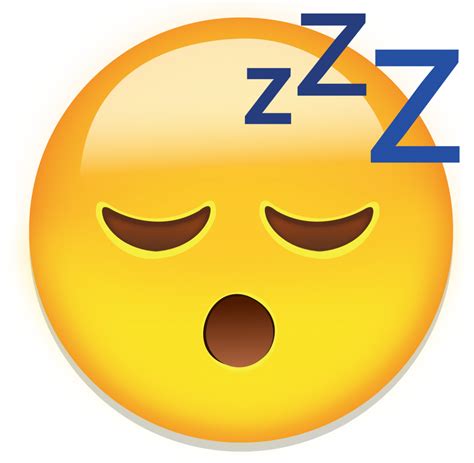What advanced sleep hacks ensure peak recovery & daytime performance for men?

Beyond Basic Sleep Hygiene: Advanced Strategies for Men
For men aiming for peak physical recovery, robust mental clarity, and consistent high performance, sleep isn’t just a necessity—it’s a powerful tool. While the basics of sleep hygiene (a dark room, consistent schedule) are foundational, truly optimizing sleep for male physiology and demands requires a more advanced approach. This article delves into cutting-edge strategies designed to transform your nights into a powerful recovery engine, fueling unparalleled daytime output.

Mastering Your Sleep Environment: More Than Just Darkness
Your sleep sanctuary should be a meticulously controlled haven. Beyond mere darkness and quiet, consider these advanced environmental hacks:
- Optimal Temperature: The ideal sleep temperature for most men is between 60-67°F (15-19°C). Lowering your core body temperature signals your body it’s time to sleep. Invest in cooling mattresses, pillows, or even a room air conditioner.
- Air Quality & Humidity: Use an air purifier to remove allergens and pollutants that can disrupt breathing. Maintain optimal humidity levels (40-60%) with a humidifier or dehumidifier to prevent dry airways or excessive moisture buildup.
- Red Light Therapy: Replace harsh overhead lights with red-light bulbs or use red-light therapy devices in the evening. Red light has been shown to be less disruptive to melatonin production than blue or white light, aiding in a smoother transition to sleep.
- Electromagnetic Field (EMF) Reduction: Unplug unnecessary electronics in your bedroom or switch off your Wi-Fi router at night to minimize potential EMF exposure, which some studies suggest may interfere with sleep quality.
Pre-Sleep Protocols: Engineering a Deeper Rest
What you do in the hours leading up to sleep profoundly impacts its quality. Implement these advanced protocols:
- Strategic Supplementation: Beyond basic magnesium, consider targeted supplements. Glycine can improve sleep quality and reduce daytime sleepiness. Apigenin, a flavonoid found in chamomile, may promote relaxation. Low-dose melatonin (0.3-0.5mg) can be effective for circadian rhythm regulation, but consult a professional.
- Thermal Contrast Therapy: A warm bath or shower 60-90 minutes before bed followed by exposure to cooler air can help rapidly drop your core body temperature, signaling sleep.
- Vagal Nerve Activation: Gentle exercises like humming, gargling, or cold water splashes to the face can stimulate the vagus nerve, promoting a ‘rest and digest’ state. Deep, diaphragmatic breathing exercises also fall into this category.
- Mind-Dumping & Gratitude Journaling: Before bed, write down any worries or tasks for the next day. Follow this with listing things you’re grateful for to shift your mindset from stress to calm.

Leveraging Data & Biofeedback for Precision Sleep
Modern technology offers unprecedented insights into your sleep patterns:
- Advanced Sleep Trackers: Go beyond basic step counters. Devices like Oura Ring, Whoop, or specialized sleep mats provide detailed data on sleep stages (REM, deep sleep), heart rate variability (HRV), respiratory rate, and body temperature.
- Analyze HRV for Recovery: A higher HRV generally indicates better recovery and readiness for stress. Track your trends to understand how different lifestyle factors impact your nervous system’s recovery.
- Identify Sleep Disruptors: Use data to pinpoint what genuinely helps or hinders your sleep. Is that late-night snack affecting your deep sleep? Does a specific workout impact your recovery score?
- Biofeedback Training: Consider apps or devices that offer guided meditation or biofeedback exercises to teach you how to consciously control physiological responses (like heart rate) for relaxation before sleep.

Nutritional & Hydration Strategies for Optimal Sleep
Your diet plays a critical role in sleep quality, especially for men focused on recovery:
- Time Your Macronutrients: A light, carb-rich snack (e.g., small bowl of oatmeal, banana) 1-2 hours before bed can help facilitate serotonin and melatonin production. Avoid heavy, fatty, or spicy meals close to bedtime.
- Manage Caffeine Intake: Understand your individual caffeine sensitivity. For some, even morning coffee can impact sleep. Consider a strict cut-off time, often 8-10 hours before bed.
- Alcohol’s Deceptive Role: While alcohol may initially induce sleepiness, it significantly disrupts REM sleep and deep sleep cycles later in the night, hindering recovery. Minimize or eliminate evening alcohol.
- Hydration Throughout the Day: Ensure adequate hydration during the day, but taper off fluid intake 2-3 hours before bed to minimize nighttime bathroom trips.

The Power of Consistency & Adaptability
Implementing these advanced hacks is most effective when paired with unwavering consistency. Your circadian rhythm thrives on regularity. However, life isn’t always predictable. Learn to adapt your strategies when travel, stress, or unusual schedules arise. Focus on re-establishing your core routines as quickly as possible.
By moving beyond conventional advice and embracing these advanced sleep hacks, men can transform their sleep from a passive state into an active, powerful tool for unparalleled recovery, sustained energy, and peak performance in all aspects of life.










